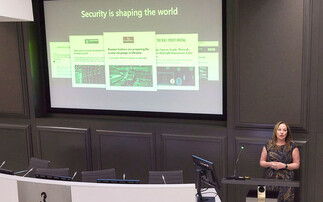Lord Reid used his keynote speech at today's Cyber Security 2011 conference to ask why only two per cent of cyber security spending is going on innovation
Former cabinet minister and chairman of the Institute of Security and Resilience Studies, Lord Reid of Cardowan, has criticised the government for not allocating more money into new ways of defendi...
To continue reading this article...
Join Computing
- Unlimited access to real-time news, analysis and opinion from the technology industry
- Receive important and breaking news in our daily newsletter
- Be the first to hear about our events and awards programmes
- Join live member only interviews with IT leaders at the ‘IT Lounge’; your chance to ask your burning tech questions and have them answered
- Access to the Computing Delta hub providing market intelligence and research
- Receive our members-only newsletter with exclusive opinion pieces from senior IT Leaders























